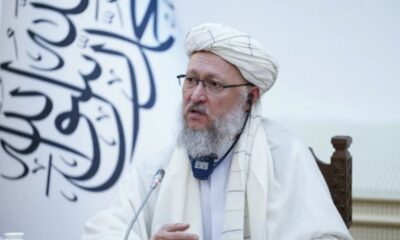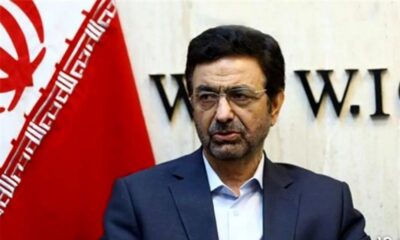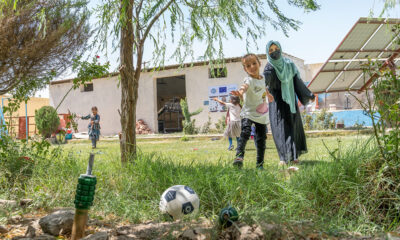Business
Minerals have become integral to conflict in Afghanistan: UNDP
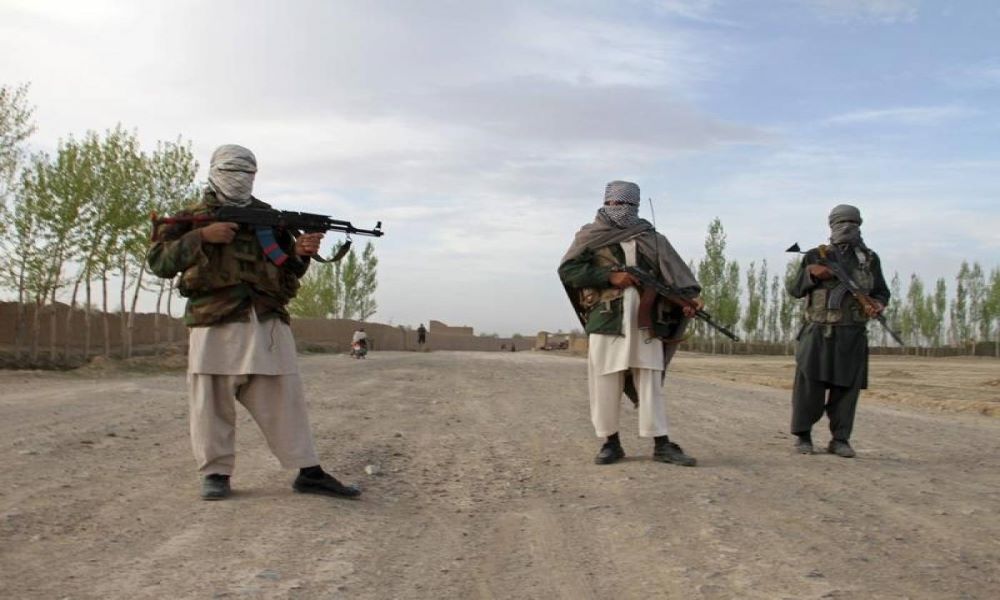
UNDP Afghanistan has found that decades of mining without a clear vision has done little to reduce poverty but has instead helped insurgent groups fund their wars, triggered local conflicts and harmed the environment.
Published on Tuesday, the UNDP’s National Human Development Report 2020 on minerals extraction in Afghanistan states that the country’s minerals extraction is poorly regulated, often illegal, and in many parts of the country is controlled by political elites, and by insurgents.
Based on extensive fieldwork, consultations and discussion, UNDP also found that illegal mining is a complex phenomenon, contributing to insecurity, corruption, human rights violations and conflict that affects the lives of citizens.
Afghanistan is richly endowed with mineral and hydrocarbon resources, which include base and precious metals, precious and semi-precious stones, rare earth elements, mineral rocks and industrial minerals, and energy resources.
At present these contribute little to the economy or society, mainly because they remain in the ground, but also because most of the mining is informal and illegal.
“If the country is to unlock the potential of its mineral wealth, the government and other stakeholders will need to strengthen the management of resources and ensure peace and security,” UNDP stated.
“Unregulated mining feeds and is fed by conflict. It has become the magnet of corrupt individuals and networks, and some mining businesses are implicated in serious human rights violations, often acting with impunity,” read the report.
“In Afghanistan, there is an urgent need to improve governance, tackle corruption and put an end to illegal extraction and trade of minerals,” said Abdallah Al Dardari, UNDP Resident Representative for Afghanistan.
“Large-scale mineral, oil and gas projects can be instrumental for financing development, but it will require stability and enhanced government capacity to get its due share from these projects and use them well for human development,” he added.
The report recommends that all partners implement programs demonstrating good practices, methods and technologies in mining.
Afghanistan’s Minister of Mines and Petroleum Haroon Chankhansuri meanwhile said: “I welcome the release of the report and look forward to our collaboration with UNDP and other partners on the opportunities explored by this report on the potential of economic growth through extractive industries.”
The minister added, “the recommendations on policy choices to ensure people benefit from and participate in extractive industries potential, and mitigating the risks associated with this type of development will be considered in the government’s plans for the sector.”
According to UNDP, the organization’s new programs, Afghanistan Sustainable Development Goals (A-SDGs) and Agenda 2030 is focused on transferring the war economy into a peace economy, and that the extractive sector is a key area for revenue generation and economic growth.
In 2010 the US Task Force for Business and Stability Operations estimated the monetary value of Afghanistan’s mineral resources at nearly $1 trillion.
But, according to the UNDP, since the 1980s, many mines have come to be controlled by networks of former jihadis who, after the defeat of the Taliban, have at different times acquired positions of influence within the government.
These networks often operate with impunity – openly and audaciously smuggling mineral resources out of the country, read the report.
“More recently, with the decline in international aid, and the reduced demand for new buildings, many well-connected construction companies have moved into the mining sector.”
Mining financing conflict
The report also stated mining has been financing conflict and that the control of minerals extraction by insurgent groups has meant that they have been financing and fuelling conflict while undermining the legitimacy of the Afghan government and further spreading corruption and violence.
“The group with the most extensive reach is the Taliban, but since 2015, other groups under the name of Islamic State of Khorasan (IS-K/Daesh) have joined the competition for minerals,” read the report.
For the Taliban, the extractive industry is the second-largest revenue stream after narcotics.
It collects taxes and ‘protection money’ from miners but more recently, the IS-K started tapping the mining sector when financial support waned from the central ISIS branch, the report stated.
One example cited was with talc-rich Nangarhar province where government, Taliban and IS-K actively contested the talc mining areas.
“For a mining company, the benefits of paying taxes to the government are limited, while the risks of not paying taxes to insurgents are enormous,” the UNDP stated adding that IS-K, in particular, is known for brutal sanctions for non-compliance.
“In addition to these groups, local militias, warlords, and occasionally security forces, are also levying taxes on minerals or are involved in illegal mineral extraction – directly or through associates and family members,” the report stated.
The UNDP stated that in areas controlled by insurgents, lucrative large-scale mining sites operate on an industrial scale then openly transport bulk minerals on large trucks along major roads and across the border to Pakistan.
“Governance of extraction is weakened by extensive corruption. Even where mining companies operate legally, there can be corruption in the issue of contracts,” the report stated.
According to UNDP, violations of human rights in regard to minerals extraction was also a problem.
“There have been documented cases of human rights violations by mining companies which are protected by networks of power brokers.”
Afghanistan is one of the world’s poorest countries – held back by decades of conflict but with prospects for peace, there will be greater opportunities for investing in human development.
The UNDP stated however that this will require taking full advantage of the country’s mineral resources.
“But it will require a determined and concerted effort to reform the country’s policies and institutions governing these resources. The ultimate objective of minerals extraction in Afghanistan should be sustainable human development and improvements in people’s well-being.”
CLICK HERE for the full report
Business
China’s first railway consignment arrives in Afghanistan via Iran
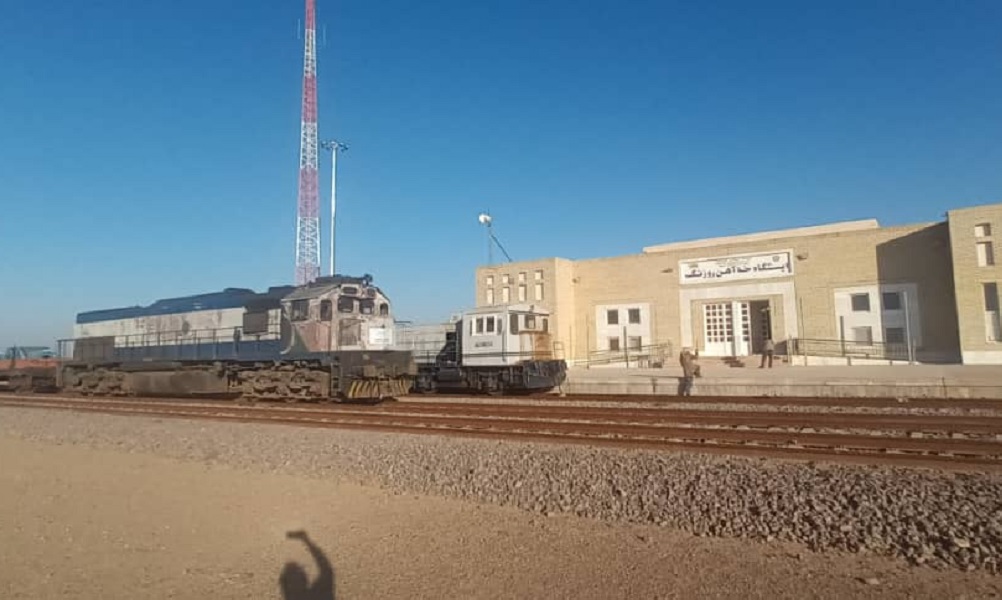
China's first railway transit consignment to Afghanistan via Iran, carrying 1,000 tons of iron coil, arrived at Roznak station in Herat province, the Ministry of Public Works said on Friday.
The consignment, which started its journey from China, arrived in Afghanistan via Iran's railway network, Public Works Ministry spokesman Mohammad Ashraf Haqshenas said in a statement.
"The transportation of cargo through this route is an important step in the development of Afghanistan's transit links and connection to open waters and represents progress in the field of regional transport and transit," he said.
Haqshenas added that the completion of the Khaf-Herat railway would offer new potentials for Afghanistan's economy and create a good platform for expanding trade and transit in the region.
Business
Russia is using bitcoin in foreign trade, finance minister says
This year, Russia permitted the use of cryptocurrencies in foreign trade and has taken steps to make it legal to mine cryptocurrencies, including bitcoin.

Russian companies have begun using bitcoin and other digital currencies in international payments following legislative changes that allowed such use in order to counter Western sanctions, Finance Minister Anton Siluanov said on Wednesday.
Sanctions have complicated Russia's trade with its major partners such as China or Turkey, as local banks are extremely cautious with Russia-related transactions to avoid scrutiny from Western regulators, Reuters reported.
This year, Russia permitted the use of cryptocurrencies in foreign trade and has taken steps to make it legal to mine cryptocurrencies, including bitcoin. Russia is one of the global leaders in bitcoin mining.
"As part of the experimental regime, it is possible to use bitcoins, which we had mined here in Russia (in foreign trade transactions)," Siluanov told Russia 24 television channel.
"Such transactions are already occurring. We believe they should be expanded and developed further. I am confident this will happen next year," he said, adding that international payments in digital currencies represent the future.
Earlier this month, President Vladimir Putin said that the current U.S. administration was undermining the role of the U.S dollar as the reserve currency by using it for political purposes, forcing many countries to turn to alternative assets, Reuters reported.
He singled out bitcoin as an example of such assets, saying that no-one in the world could regulate bitcoin. Putin's remarks indicated that the Russian leader backs the extensive use of cryptocurrencies.
Business
Shoemaking industry in Takhar province facing stagnation
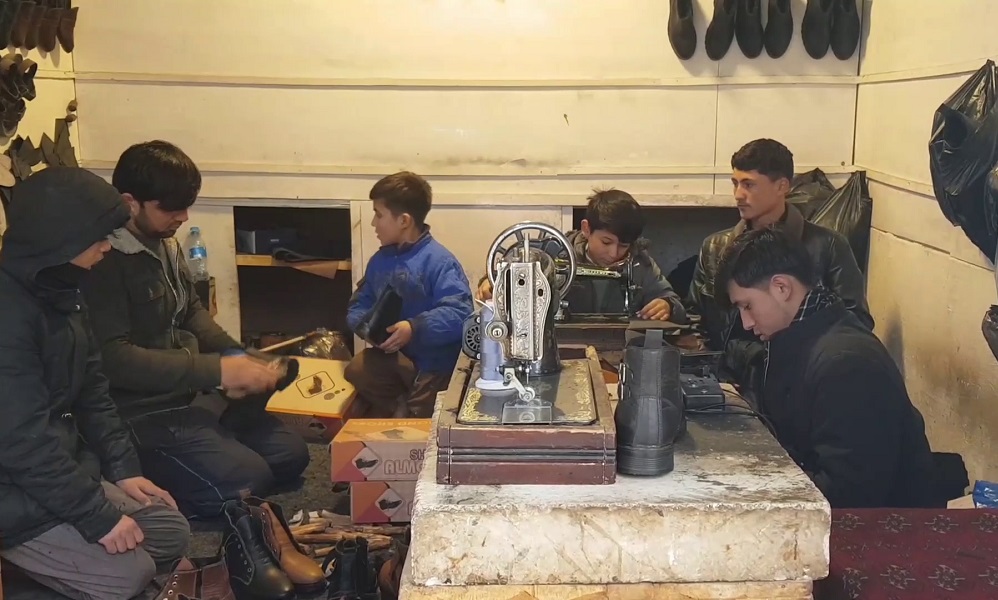
A number of shoemakers in northern Takhar province say that while their handmade shoes are of better quality than imported shoes, but still sales are down.
According to them, there were more than 20 shoe-making shops in the past, but now some have been closed due to the decline in sales.
The shoemakers make most of their shoes from leather. A number of industrialists say that this industry is now facing stagnation.
Abdul Raqib, a shoemaking factor owner, said: “The government should support us. Currently, we import soles. It can be made with good quality in Afghanistan, and we could even compete against Turkish shoes.”
Meraj, another shoemaking factory owner, said: “Shoe sales were higher in the republic era. There were military shoes. Sales have declined now, but we still thank Allah.”
Shoemakers make these shoes with basic tools and by hand, with 5 to 8 people working in each shop.
Javed, a shoemaker, said: “Our sales are not so good. We can make any type of shoe or slipper. We want the government to support us.”
A number of Takhar residents say that domestically produced shoes are of high quality and with lower price compared to imported shoes, so people prefer domestic products to foreign products.
Mir Ata, a resident of Takhar, said: “We are very happy about domestic shoes. People should buy it. They are of good quality.”
However, the officials of Takhar Industry and Commerce Department say that they are committed to support the industrialists.
Abdul Rahman Ghaznawi, provincial director of industry and commerce, said: “People prefer domestic shoes and slippers. Takhar’s products are sold in Kunduz, Baghlan and Badakhshan as well.”
Meanwhile, industrialists say that if the government supports them, they will be able to make the best products and can be more competitive.
-
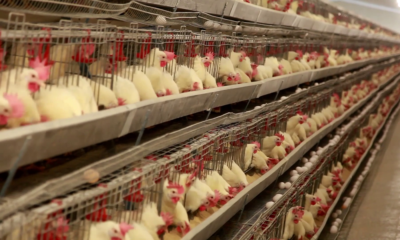
 Latest News3 days ago
Latest News3 days agoMinistry: $1 billion invested in Afghanistan’s poultry production sector
-
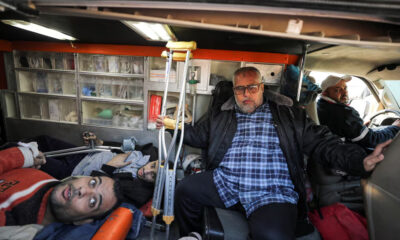
 Regional5 days ago
Regional5 days agoU.N. body accuses Israel of destroying Gaza healthcare
-
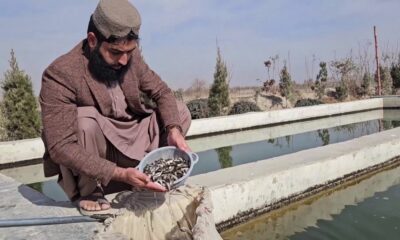
 Latest News3 days ago
Latest News3 days agoDeclining water levels affect 50 percent of fish farms in Kandahar
-
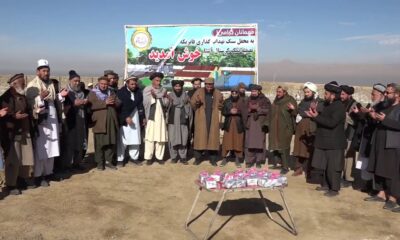
 Latest News3 days ago
Latest News3 days agoSalt refinery plant to be built in Takhar province
-
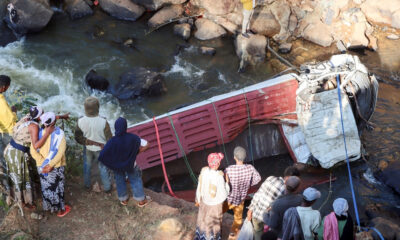
 Latest News5 days ago
Latest News5 days agoAt least 71 killed in Ethiopia road accident
-

 World4 days ago
World4 days agoUS vet formerly deployed in Afghanistan rams truck into New Orleans crowd, killing 15
-

 Sport4 days ago
Sport4 days agoAfghanistan set for second test against Zimbabwe in Bulawayo
-

 Regional4 days ago
Regional4 days agoUS imposes sanctions on entities in Iran, Russia over election interference




